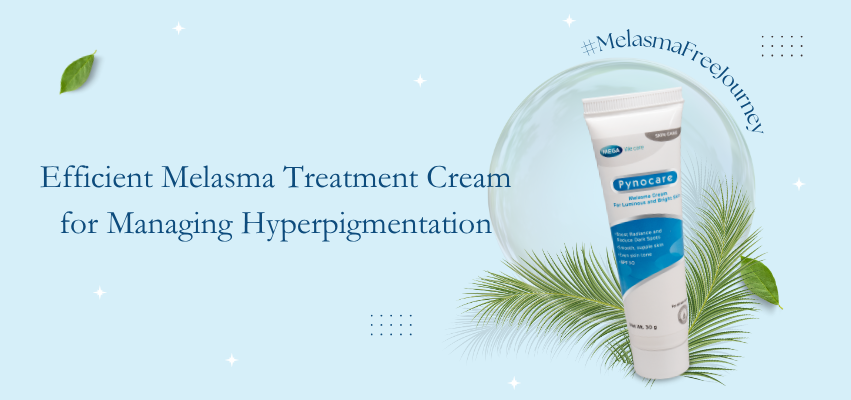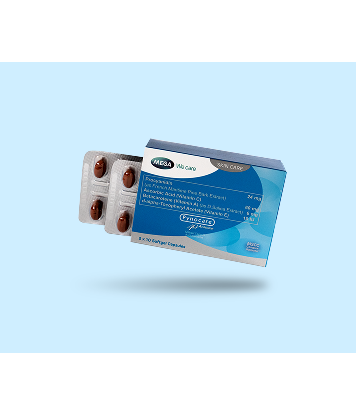Pregnancy is a beautiful and transformative time in a woman’s life. However, it can also come with some unexpected changes, one of which is melasma. Melasma is a common skin condition characterized by dark patches or discoloration on the face. While it may be frustrating, it is important to remember that melasma is temporary and treatable. In this blog, we will explore the relationship between melasma and pregnancy, as well as share tips and solutions to help you embrace your glowing connection. So, let’s delve into this topic and discover how we can navigate melasma, embrace our changing bodies, and celebrate the journey of motherhood.
What is Melasma?
Melasma, also known as “the mask of pregnancy,” is a skin condition characterized by the appearance of dark patches, primarily on the face. These patches often show up on the cheeks, forehead, or upper lip, and they can be a result of increased pigmentation caused by hormonal changes during pregnancy. Melasma isn’t harmful, but it can be distressing for many women.
By understanding the triggers and factors that contribute to melasma, we can begin to take control of our own skin health and embrace the beautiful changes that pregnancy brings. In the following section, we will delve deeper into the causes and symptoms of melasma, empowering ourselves with the knowledge to confidently navigate this temporary condition.
The Connection with Melasma and Pregnancy
During pregnancy, an increase in hormone levels can trigger the onset of melasma, leaving many expectant mothers feeling self-conscious about their appearance. It’s important to shed light on this condition and understand that melasma is a common occurrence that affects women of all skin types. While it may seem alarming at first, rest assured that melasma is a harmless condition that fades over time.
The hormonal rollercoaster during pregnancy is the primary trigger for melasma. These hormonal shifts, particularly the increase in estrogen and progesterone, stimulate the production of melanin, the pigment responsible for our skin color. This excess melanin manifests as dark patches on the face, commonly found on the cheeks, forehead, and upper lip.
While these patches may initially cause concern, it’s essential to remember that melasma is a harmless condition. It poses no threat to the health of the baby or the mother. Furthermore, it’s important to stay optimistic, as melasma typically fades on its own after giving birth or as hormone levels stabilize.
Other Factors That Can Cause Melasma During Pregnancy
While the surge in hormone levels is the primary cause of melasma, other factors can contribute to the development and worsening of these dark patches. One significant trigger is sun exposure. Ultraviolet (UV) rays can stimulate the production of melanin, intensifying the appearance of melasma. That’s why it’s crucial for expectant mothers to protect their skin by using broad-spectrum sunscreen, wearing hats, and seeking shade when possible.
Another factor that can exacerbate melasma is certain skincare products. Some ingredients, like retinoids and certain essential oils, can increase sensitivity to sunlight and worsen pigmentation. It’s essential to consult with a healthcare professional or dermatologist before using any new products during pregnancy.
Maintaining a healthy lifestyle through a balanced diet and regular exercise can also support overall skin health and hormone balance, potentially minimizing the severity of melasma.
Coping with Melasma During Pregnancy
While melasma during pregnancy might not completely disappear until after childbirth, there are steps to manage and minimize its impact. Let’s explore some effective management strategies and home remedies to help you navigate through this exciting time.
First and foremost, maintaining a consistent skincare routine is crucial. Opt for gentle, non-irritating cleansers and moisturizers that are safe for pregnancy. Look for products specifically formulated for sensitive skin and free of harsh chemicals. Sun protection is paramount. Using a broad-spectrum sunscreen with a high SPF, wearing broad-brimmed hats, and seeking shade can significantly reduce the darkening of these patches.
When it comes to treatment options, consult with your healthcare professional or dermatologist for personalized recommendations. They may suggest topical creams or serums with ingredients like hydroquinone, azelaic acid, or kojic acid. These ingredients can help lighten melasma patches over time.
In addition to professional treatments, there are also home remedies you can try. Incorporating natural ingredients like aloe vera, lemon juice, or yogurt into your skincare routine may help reduce the appearance of melasma.
Remember, melasma is a temporary condition, and with the right approach, you can manage it successfully. Stay optimistic and cherish the amazing connection you have with your growing baby. In the next section, we’ll tunnel into the emotional aspect of dealing with melasma during pregnancy and share some uplifting tips to boost your confidence.
Embracing Your Melasma and Pregnancy Glow
As a new journey begins, it’s time to embrace the bond between melasma and pregnancy. Your melasma may have brought some changes to your skin, but it’s important to remember that these changes are a testament to the incredible journey your body is undergoing.
While managing melasma is important, it’s equally vital to nurture your emotional well-being. Pregnancy is a transformative time, and it’s natural to feel a range of emotions. Surround yourself with positive affirmations and uplifting influences, such as supportive loved ones, inspiring books, or uplifting podcasts.
The Post-Pregnancy Melasma Challenge
For some women, the concern of melasma doesn’t fade post-pregnancy. This is where seeking safe and effective treatments becomes crucial. Enter Pynocare, a promising solution for post-pregnancy skin changes.
Pynocare: A Post-Pregnancy Solution
Pynocare has emerged as a highly promising solution for women dealing with melasma concerns after pregnancy. Its powerful combination of active ingredients, including Beta-carotene, Ascorbic Acid, d-alpha-Tocopheryl Acetate, and Procyanidin, work together seamlessly to effectively combat dark spots on the face. This supplement is not only effective but also safe for breastfeeding mothers. What sets Pynocare apart is its natural composition, which not only targets melasma with great efficiency but also ensures your health and well-being. It’s always recommended to consult with a healthcare professional before starting any supplement regimen post-pregnancy, as they can provide personalized guidance and assurance. By doing so, women can confidently address their skin concerns while taking into consideration the advice and expertise of their healthcare provider.
Post-Pregnancy Melasma Care Beyond Pynocare
While Pynocare is a great product that can help fade those pesky melasma spots, there are other steps you can take to ensure that your skin stays radiant and healthy. First, it’s essential to continue practicing sun protection. UV rays can worsen melasma, so make sure to apply sunscreen with a high SPF every day, even if you’re just running errands. Another way to support your skin’s recovery is by nourishing it from the inside out. Eating a balanced diet full of fruits, vegetables, and whole grains can provide essential vitamins and antioxidants that promote skin health. Additionally, drinking plenty of water helps hydrate your skin. Continue using the advised skincare routine you’ve been using during pregnancy to fade those dark spots post-pregnancy. Lastly, it’s crucial to be patient and kind to yourself during this post-pregnancy journey. Hormonal changes can take time to settle down, so don’t be discouraged if progress is slow. With consistent care, a positive mindset, and the support of Pynocare, you can regain your self-confidence and achieve the healthy skin you deserve.
Remember, each mom’s journey is unique, and it’s essential to find a routine that works best for you. By staying proactive and optimistic, you will be well on your way to conquering post-pregnancy melasma and embracing your beautiful new role as a mother!
Conclusion
Understanding the connection between melasma and pregnancy and the available solutions is truly empowering. Taking preventative measures during pregnancy and seeking safe treatment options, like Pynocare post-pregnancy, will help you return to your healthy-looking skin. Equipping women with knowledge and tools to address these changes is crucial in ensuring their confidence and self-assurance during this transformative phase of life.
Pynocare offers a beacon of hope for women dealing with post-pregnancy skin changes. It provides a pathway to address these changes and restore a sense of assurance and well-being. Pynocare enables them to embrace their journey into motherhood with confidence and joy.
Ultimately, managing melasma during and after pregnancy is not just about physical appearance; it goes beyond that. It is about supporting women throughout their transformative experiences and ensuring they feel empowered and confident in their new roles as mothers. By addressing melasma and other skin changes, women can fully enjoy the joy and beauty of motherhood.
Reference:
- Sehgal, V. N., Verma, P., Srivastava, G., Aggarwal, A. K., & Verma, S. (2011, October 7). Melasma: Treatment strategy. Journal of Cosmetic and Laser Therapy, 13(6), 265–279. https://doi.org/10.3109/14764172.2011.630088
- Moin, A., Jabery, Z., & Fallah, N. (2006, January 20). Prevalence and awareness of melasma during pregnancy. International Journal of Dermatology, 45(3), 285–288. https://doi.org/10.1111/j.1365-4632.2004.02470.x
- Handel, A., Lima, P., Tonolli, V., Miot, L., & Miot, H. (2014, August 7). Risk factors for facial melasma in women: a case–control study. British Journal of Dermatology, 171(3), 588–594. https://doi.org/10.1111/bjd.13059
- When Does Melasma Appear in Pregnancy: Self-Care Guide For Pregnant Women — Articles — We Care For Skin. We Care for Skin. https://www.wecareforskin.net/articles/when-does-melasma-appear-in-pregnancy-self-care-guide-for-pregnant-women
- Managing Melasma During Pregnancy — Articles — We Care For Skin. We Care for Skin. https://www.wecareforskin.net/articles/help-i-m-pregnant-and-now-i-have-dark-patches-on-my-skin-or-managing-melasma-during-pregnancy
————————————————————————————————————————————————————————————–
PYNOCARE (Procyanidin + Ascorbic Acid + Betacarotene + d-Alpha-Tocopheryl Acetate)
The first and only oral medicine that is clinically proven to reduce Melasma or dark spots formation in just 8 weeks. Unlike creams, lotions, and gels, it has MSCC or Melasma Skin Clear Complexion Complex formulation that deeply penetrates the inner layers of the skin, to help normalize melanin levels, thus minimizing the appearance of dark spots in a short time.
Mega Lifesciences Limited Inc. or Mega We Care, is actively involved in helping millions of people have access to safe, effective, world-class quality nutritional & herbal supplements, OTC, and ethical products.





















No Comments on Melasma and Pregnancy – The Connections and Solutions